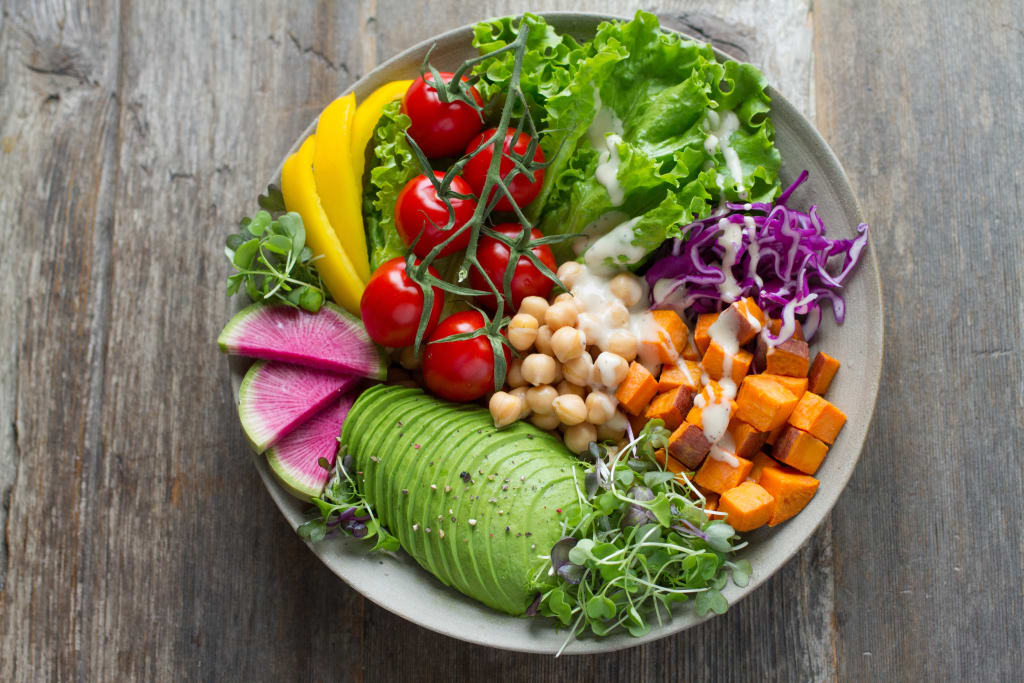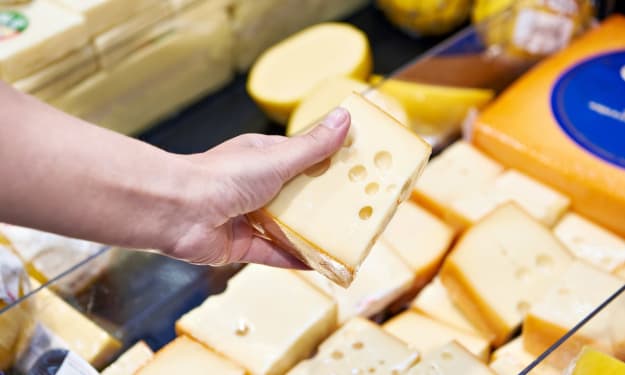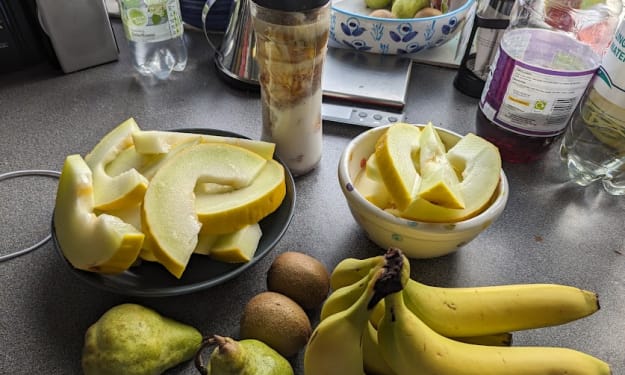
While veganism, which is entirely plant-based (no meat, fish, or dairy), is gaining acceptance, doubts about its health benefits are growing, especially when it is adopted by competitive athletes. on this diet.
In the minds of many people—even some nutrition experts—it’s a belief that athletes must eat meat and dairy to build muscle mass and look their best.
Nancy Clark is a sports nutritionist in the Boston area and author of Nancy Clark's Guide to Sports Nutrition. In an interview with The New York Times, she said: "The speech on vegan athletes at the annual meeting of the American Academy of Sports Medicine concluded that there is not enough research to understand how vegetarians—let alone vegan diets—are important to sports. What impact does it have.”
Julieanna Hever, author of The Vegetarian Nutrition Guide for Dummies, has been a vegan diet for six years, and she believes athletes can thrive on a vegetarian diet. But she also pointed out: "No one has studied the health benefits of a vegan diet for competitive athletes."
Haver believes in her own experience, and based on the feedback she has received from her clients and interviewers, she insists: "Vegetarian diets lead to better performance in athletes because strenuous exercise increases free radical production in the body, while plant-based foods lead to better performance. Rich in oxidants, athletes can recover faster by inhibiting free radicals.”
There are many opinions on the impact of vegetarianism on competitive athletes, but these are all subjective opinions and personal experiences, and more and more "practical" experts - nutritionists, athletes, etc. - are giving the green light to vegan athletes.
Natural bodybuilder Derek Tresize is the poster child for vegan athletes, and when he became a vegan for two years, he became a natural bodybuilder. Tresize, who has competed in 4 races and won one of them, claims to be "consistently the only vegan of 60-80 competitors".
3 Questions to Ask Yourself Before Getting Ready to Start Vegetarianism
According to Jennifer McDaniel (RD), a spokeswoman for the Academy of Nutrition, there are 3 main questions athletes need to consider when considering a vegan diet:
(1) Will my diet give me the adequate nutrition I need to perform at my best?
(2) Will I get enough nutrients to maximize energy production?
(3) Is a vegetarian diet deficient in certain nutrients? (If so, can supplements replace those nutrients? Which ones should I take?)
If you're following the correct vegetarian pattern, the answer to the first question must be yes, says Felicia Stoler, a nutritionist in New Jersey: "It's hard to be a competitive athlete because all athletes are vegan. Both protein and calorie needs are higher than normal. Animal-based protein sources are complete and more bioavailable than plant-based proteins—meaning the body can use them more easily. This It also means that vegan athletes can also consume enough protein to enhance their athletic performance if they can choose their protein supplement sources carefully and monitor their overall intake.
Controversy continues as to whether the benefits of a vegan diet are affected by the type of exercise, for example: for athletes who want to gain muscle mass (lean body mass), following a vegan diet can make it more difficult to achieve goals, But for a marathon or cyclist, this is not a serious problem.
"Gaining muscle is hard, but losing is easy," Haver said. "For vegan athletes, there are two solutions to the dilemma: choose a lower weight group for comparison, or increase your overall total calorie intake."
Dr. David Nieman, director of the Human Performance Laboratory at Appalachian State University, believes that a vegan diet may be better for endurance athletes. "A vegan diet, which is high in carbohydrates and low in fat, naturally provides energy for endurance sports. Support. It's thought that a plant-based dietary pattern increases athlete performance, but it's actually due to carbohydrate intake."
D. Enette Larson-Meyer, Ph.D., associate professor at the University of Wyoming and author of Vegetarian Sports Nutrition, is supportive, saying, "Long-distance exercise requires protein for muscle repair, and strength exercise requires protein to build muscle mass. We do A high-intensity weightlifting workout doesn't take long, but endurance athletes burn more calories, so their nutritional needs are more difficult to meet.
Special challenges for vegans
Athletes like Tresize and Arian Foster have shown that vegetarian diets can also make elite athletes. However, vegetarian athletes face more challenges than meat eaters in any sport.
The biggest concern for vegetarian athletes is getting enough calories - making sure their energy intake matches their energy expenditure.
Plant-based foods provide less protein and total calories per unit volume than animal-based foods, so vegan athletes may have to increase total calorie intake.
Tresize realized this early on: "Plant foods are not only less calorie dense, they are also less anabolic, which reduces fat and muscle retention. So I had to increase my calorie intake by 10-20%. .” (To stay in top shape, he eats 4,000-4,500 Kcal a day, and 3,000 Kcal a day before the race).
Just as important as caloric intake is getting enough protein, especially when strength training. "If you stick to a vegetarian diet during rigorous resistance training, you need to consume 30-50g more protein per day than meat eaters," Nieman said. "If an athlete's plant protein source is all foods like soy, nuts and seeds, the quality of the protein they get It's the same as animal food, except that the protein content of animal food is higher."
Haver says vegans can choose from soy products, beans, green leafy vegetables (43 percent of their total calories from protein), nuts, seeds, whole grains (e.g. quinoa, a complete plant-based source of protein), wild rice (7g protein per cup) and sprouted grain bread (8g protein per slice) to get all the protein you need.
Another important point for vegan athletes to be aware of: You also need to get enough vitamin B12, which is essential for red blood cell production. Since vitamin B12 can only be obtained from animal foods, vegan athletes can only get it through supplements.
If the athlete is eating some fortified soy milk, grains, and nutritional yeast, 2.4-2.6 micrograms per day should be sufficient.
The best source of omega-3 essential fatty acids, which are important for controlling inflammation, is fish. Therefore, vegan athletes must get it in walnuts, flaxseeds, chia seeds, and plant-based microalgae supplements (plant-based DHA capsules can be used in place of fish oil).
Depending on their food choices, some vegan athletes may also be deficient in calcium intake. Larson-Meyer believes that we do not need meat and dairy products to meet calcium needs. Calcium-rich plant-based foods like kale Food is something most people are not familiar with.
Even if some people like it, they don't consume it as often as they consume milk and yogurt. So as long as we choose the correct calcium-rich plant foods, we can also meet the needs of the human body.
Iron is another nutrient that vegetarians may be deficient in. However, as long as we don't eat it with foods that inhibit iron absorption, such as coffee and tea, we don't have to worry about it. In addition, excessive calcium supplementation will also affect the absorption of iron.
Zinc is also a very important nutrient. Similar to calcium and iron, zinc from animal foods is more easily absorbed and utilized by the body. For vegetarians, good food sources of zinc include: beans, nuts, seeds, and whole grains.
"Because we don't have a good understanding of how well zinc is absorbed and utilized in the body, supplementation is not recommended," Larson-Meyer said.
Do you think vitamin D, a performance-enhancing nutrient associated with immune health, inflammation and muscle function, is a nutrient that is deficient worldwide?
Indeed, due to the long-term working in the office and the excessive use of sunscreen, we cannot synthesize enough vitamin D through sunlight.
People can get adequate amounts of vitamin D from dairy, but for vegans, grains, soy products, and fortified orange juice are better alternatives, or opt for a 10-15 minute daily sunbath .
Going back to the previous discussion of optimal athletic performance, the consensus so far is that vegan athletes can train just as well as non-vegetarians. It's all about eating patterns. "In general, the worse the previous eating pattern, the more likely you are to experience gastrointestinal discomfort due to the increase in dietary fiber after a vegetarian diet," Haver said. However, this "detox symptom" only lasts for a few days.
A vegan experiment has shown that finding vegan-friendly food is not easy in places where fast food is ubiquitous. "While more and more restaurants are now adding vegetarian-friendly options to their menus, finding food can still be a challenge for vegetarians," Nieman said. "For vegetarians, they need more meal planning," said Nieman. For example: carry a bento box with fruit, nuts and a vegan energy bar with you.”
Contrary to what many people think, veganism doesn't "bleed" our wallets, and many natural prototypical foods like beans and whole grains aren't very expensive, especially when bought in bulk. In addition, vegetarian cooking is relatively convenient, Haver said: "All you need is an electric steamer and you can make dozens of dishes."
The biggest obstacle vegan athletes may have to overcome is peer pressure because they are "carnivores." Clark: "If you don't have enough confidence, it's hard to stay vegetarian because it's so good to eat in the same pot with everyone." Tresize said: "My peers often laugh at me, but when When they witness my harvest, they will be quiet."





Comments
There are no comments for this story
Be the first to respond and start the conversation.